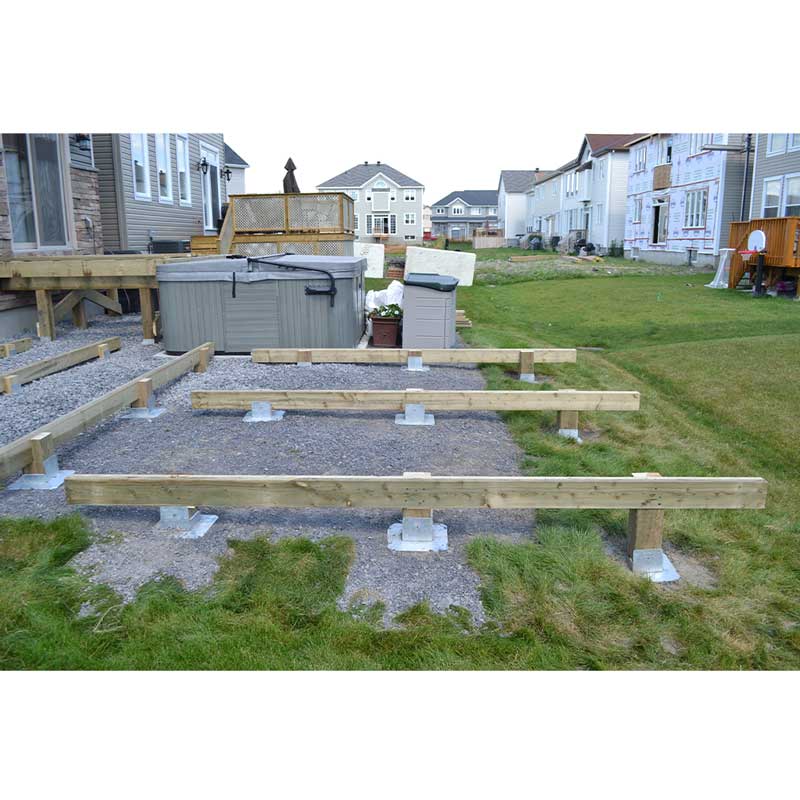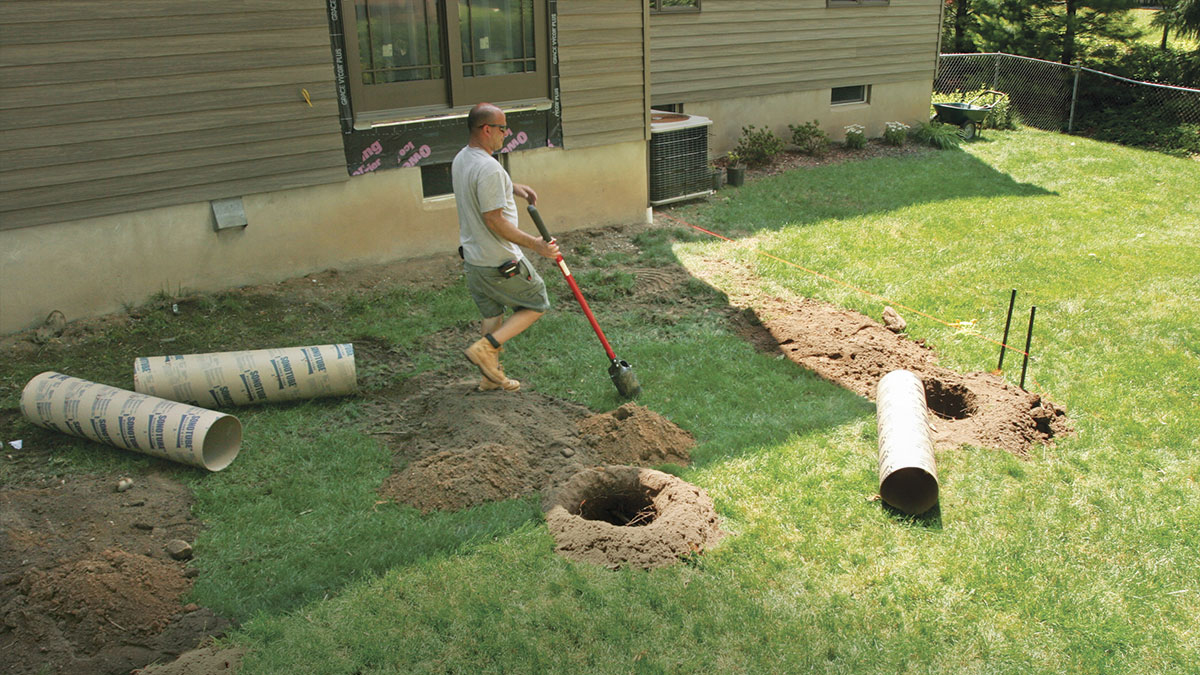Solid Ground, Solid Structure: The Fundamentals of Deck Footings Setup
Solid Ground, Solid Structure: The Fundamentals of Deck Footings Setup
Blog Article
Produce a Strong Structure for Your Deck With Deck Ground: Make Best Use Of Stability and Lessen Structural Issues
When it comes to constructing a deck, one of the most crucial components frequently forgot is the deck footing. In this discussion, we will certainly discover the importance of deck ground, the process of picking the best product, preparing the ground, and the proper installation strategies. By the end, you will certainly have a thorough understanding of exactly how to produce a rock-solid foundation for your deck, guaranteeing its durability and safety for years to come.
Relevance of Deck Ground
The value of deck ground can not be overstated as it functions as the structure whereupon the entire deck framework counts for stability and structural honesty. Deck grounds are the base support group that moves the tons of the deck to the ground, making sure that the weight is uniformly dispersed and protecting against any kind of sinking or shifting of the framework. Without a solid and properly built footing, a deck is vulnerable to a variety of structural concerns, such as drooping, leaning, and even collapse.
Deck grounds play an essential duty in maximizing the stability of the deck. This security not only makes sure the safety of the deck customers yet likewise reduces the risk of damages to the deck itself.
Moreover, deck grounds are vital for preserving the architectural integrity of the deck. By providing a solid base, grounds assist to disperse the weight of the deck and any kind of used lots to the underlying dirt or concrete. This protects against too much anxiety on the deck products, such as the beams and articles, and makes certain that the deck stays sturdy and tough gradually.
Choosing the Right Footing Product
To guarantee optimum stability and architectural stability, picking the proper ground product is a critical decision when it pertains to developing a deck. The option of footing material relies on numerous aspects such as the dirt problems, climate, and the total layout of the deck. There are several alternatives offered, each with its very own benefits and negative aspects.
One usual footing material is concrete. Concrete grounds are durable and give excellent security.

Sonotubes are suitable for decks with light to modest tons and in areas with secure soil problems. They may not be as durable as helical or concrete piers.
Eventually, the choice of footing product depends on numerous elements, including budget plan, soil problems, and the specific needs of the deck. Consulting with a professional building contractor or structural designer can assist ensure that the ideal footing material is picked for your deck, maximizing security and minimizing architectural issues.
Preparing the Ground for Footing Setup
Properly preparing the ground is a necessary step in the setup of deck grounds, making sure a secure foundation for your deck. Prior to beginning the installation process, it is critical to thoroughly check the ground and make necessary modifications to make certain that the footing will be safe and secure.
To start, clear the area of any type of particles, rocks, or plant life that may obstruct the setup procedure. This will certainly provide a clean and level surface for the grounds. Next off, analyze the soil conditions to identify if any type of extra actions require to be taken. It might be essential to compact it or include a layer of gravel to enhance stability. if the soil is loose or unsteady.
In many cases, it may be recommended to dig a hole for each footing to ensure correct depth and security. The deepness will certainly vary depending on the dimension and weight of the deck, along with the dirt problems. It is very important to seek advice from regional building codes and guidelines to determine the ideal deepness for your certain circumstance.
Once the ground has actually been gotten rid of and prepared, it awaits the installation of the deck grounds. By putting in the time to appropriately prepare the ground, you can optimize stability and minimize possible architectural issues, making certain a strong foundation for your deck.
Correct Setup Techniques for Deck Ground
Utilizing proper setup techniques is essential for making sure the stability and architectural integrity of deck grounds (Deck Footings). When setting up deck grounds, it is necessary to follow certain guidelines to make best use of the durability and safety and security of your deck
First of all, it is crucial to figure out the suitable dimension and depth of the footings based upon the local building regulations and soil conditions. This details will assist determine the spacing and number of grounds required to sustain go to website the weight of the deck.

When putting the grounds, it is necessary to utilize a secure and durable material, such as concrete. The footings must be put right into the holes, making certain they are degree and straightened appropriately with the deck's layout. It is vital to permit the concrete to heal properly before waging the deck building.
Last but not least, it is crucial to guarantee that the footings are adequately sustained and shielded from moisture. Deck Footings. This can be achieved by utilizing metal brackets or messages to raise the deck above the ground and applying waterproofing materials to avoid water damage
Preserving and Examining Deck Footing On A Regular Basis
Routine upkeep and assessments of deck footings are vital for ensuring their ongoing stability and structural honesty. Homepage By performing normal assessments, house owners can determine any type of potential problems or damage beforehand, preventing more serious problems in the future. Assessments must be performed at the very least when a year, or after significant climate occasions such as heavy rains or snow storms.
Throughout assessments, it is essential to examine for any type of signs of damage or deterioration, such as fractures, sinking, or changing of important source the footings. Any type of signs of rot or decay need to also be resolved promptly, as these can deteriorate the structure of the deck. Furthermore, examining the links between the footings and the deck blog posts or light beams is essential, as loose or damaged connections can compromise the total security of the framework.
Along with regular examinations, regular upkeep is additionally necessary to lengthen the life-span of deck footings. This includes maintaining the footings complimentary and clean from particles, as well as making sure correct drain to avoid water build-up. Consistently evaluating and maintaining the bordering landscape can likewise help avoid problems such as erosion or the growth of plant life that could affect the grounds.
Final Thought
In final thought, deck footing plays a critical role in offering stability and minimizing structural concerns for your deck. By picking the ideal ground material, preparing the ground properly, and following proper installation strategies, you can produce a solid structure for your deck. Routine upkeep and assessment of the deck footing will ensure its long-lasting durability and safety.
The value of deck footing can not be overemphasized as it serves as the structure upon which the entire deck framework relies for security and architectural stability. Deck grounds are the base support system that transfers the tons of the deck to the ground, ensuring that the weight is evenly dispersed and protecting against any sinking or moving of the structure.Deck grounds play an essential function in making best use of the stability of the deck.Additionally, deck grounds are important for keeping the structural honesty of the deck.In verdict, deck footing plays an essential role in giving security and reducing architectural concerns for your deck.
Report this page